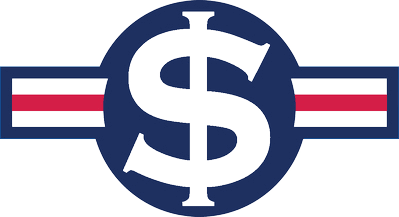Owning a home is a dream for many, and for disabled veterans, it’s one that comes with special advantages. The home loan benefits for disabled veterans offered through the Department of Veterans Affairs (VA) make buying, building, or adapting a home more affordable and accessible. These programs are designed to honor your service and help you live comfortably in a home that meets your needs.
In this guide, we’ll explore everything you need to know about VA home loan benefits for disabled veterans, including eligibility, key advantages, and additional resources available to make homeownership possible.
Understanding VA Home Loan Benefits for Disabled Veterans
The VA home loan benefits for disabled veterans provide financial support for purchasing, refinancing, or adapting a home. These loans are backed by the U.S. Department of Veterans Affairs, meaning lenders are protected against losses if the borrower defaults. As a result, veterans can access more favorable loan terms, lower rates, and flexible qualification requirements.
Disabled veterans, especially those with service-connected disabilities, enjoy even more exclusive benefits, including funding fee waivers, access to home adaptation grants, and income flexibility.
Key Home Loan Benefits for Disabled Veterans
Here are some of the most valuable home loan benefits for disabled veterans you should know:
1. Funding Fee Exemption
One of the biggest perks is the VA funding fee exemption. Normally, VA borrowers pay a one-time funding fee (ranging from 0.5%–3.6% of the loan amount), but disabled veterans are exempt if they receive VA disability compensation. This exemption can save you thousands of dollars upfront.
2. No Down Payment Required
Most conventional loans require a down payment, often 3% to 20% of the home price. However, disabled veteran home loans through the VA program often require no down payment at all, making it easier to purchase a home without draining your savings.
3. No Private Mortgage Insurance (PMI)
Unlike traditional loans, VA home loans don’t require PMI, even when you make no down payment. This results in lower monthly payments and more affordable long-term homeownership.
4. Easier Qualification & Income Flexibility
If you’re receiving VA disability compensation loans, that income counts toward your loan qualification. This allows lenders to consider your compensation as stable income, improving your chances of approval.
5. Access to Home Adaptation Grants
For veterans with service-connected disabilities requiring home modifications, there are specialized grants available:
- Specially Adapted Housing (SAH) Grant: Helps veterans with severe disabilities (such as loss of limbs or mobility issues) build or adapt a home for accessibility.
- Special Housing Adaptation (SHA) Grant: Assists veterans with specific disabilities, such as blindness or severe burns, to adapt an existing home.
These grants can provide up to $117,000 (as of 2024) to make your home more accessible and comfortable.
6. Lenient Credit Requirements
Compared to conventional loans, VA loan home requirements for disabled veterans are more flexible regarding credit scores and debt-to-income ratios. The VA focuses on your ability to repay rather than strict credit limits, making it easier for veterans with limited credit history to qualify.
Read More: Why Does ID.me Ask for Your Social Security Number? Understanding the Verification Process
7. Lower Interest Rates
Because the VA guarantees part of the loan, lenders often offer lower interest rates than conventional mortgages. This can save you tens of thousands of dollars over the life of your loan.
8. Property Tax Exemptions
Many states provide additional property tax exemptions for disabled veterans, which can reduce or eliminate your property tax bill entirely. This varies by state, but it’s worth checking with your local tax authority.
Ready to explore your VA home loan options? Visit us to discover top lenders and exclusive veteran savings today.
Eligibility and VA Loan Home Requirements for Disabled Veterans
To qualify for a disabled veteran home loan, you’ll need to meet specific VA eligibility requirements. Generally, you must have:
- Served at least 90 days of active duty during wartime, or 181 days during peacetime.
- A discharge status that’s not dishonorable.
- A valid Certificate of Eligibility (COE) from the VA.
Disabled veterans discharged due to a service-connected disability may be eligible even without meeting the standard service time requirement.
You can use a VA loan to:
- Purchase a home.
- Build a new home.
- Refinance an existing mortgage.
- Adapt or remodel a home to meet your needs.
Other Financial Benefits for Disabled Veterans
In addition to VA home loan benefits for disabled veterans, there are several other programs worth exploring:
- Interest Rate Reduction Refinance Loan (IRRRL): Helps you refinance your VA loan at a lower rate with minimal paperwork.
- Cash-Out Refinance: Allows you to access your home equity for expenses like home improvements or medical needs.
- Temporary Housing Assistance: Grants and programs that help veterans with temporary housing during the construction or renovation of an adapted home.
These benefits collectively make homeownership and long-term stability more achievable for veterans living with disabilities.
Why Choose Military Veteran Discounts
At Military Veteran Discounts, we’re proud to connect veterans and military families with exclusive discounts, resources, and financial benefits, from retail savings to vital housing programs. Our goal is to make your post-service life easier and more rewarding.
Whether you’re exploring VA disability compensation loans or learning how to qualify for a VA home loan, we’re here to guide you toward the right options.




